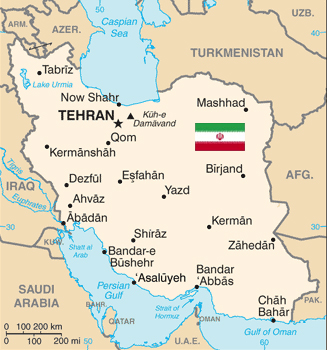Can Russia Relieve The Iranian Oil Crisis?

(Oilprice.com – Vanand Meliksetian – October 30, 2018)
Charles de Gaulle once said: “no nation has friends, only interests.” Cooperation between Russia and Iran has been increasing over the years. The countries are drifting towards each other due to shared interests over topics such as Syria and opposition to a unipolar world led by the U.S. Although Moscow and Tehran are competitors on the global energy market, U.S. sanctions have created room for collaboration.
Russian – Iranian relations
Since the crisis in Ukraine and the annexation of Crimea, Russia has been facing a united Western front concerning sanctions. Deprived of options and in an effort to assert great power status, Moscow intervened in the Syrian civil war in September 2015. Russian air power together with Iranian support on the ground gave the Syrian army the upper hand on the battlefield, allowing them to retake most of the territories held by the rebels. Strategic alignment on Syria has created the necessary goodwill for further expansion of collaboration.
Despite political, economic, and military cooperation, it would be farfetched to call Russian-Iranian relations an alliance. For starters, Tehran is not pleased with the recent rapprochement of Moscow with archenemy Saudi-Arabia. The Iranian regime has also not forgotten Russia using Iran as a bargaining chip as part of its negotiations with the West during the Medvedev presidency. Moscow and Tehran realize that the current situation is based on shared interests and tactical decisions, not a long-term strategy.
Russia is able to maximize its strategic position in the Middle East using military, economic, and political resources vis-à-vis the major players in the region. Iran, on the other hand, has a limited number of options. Its opportunities in the region are restricted to a number of isolated and relatively small actors such as Hezbollah and the Syrian government. Internationally the situation is far worse due to Trump’s Iran policy and sanctions. Therefore, Tehran’s cooperation with Russia is not so much a choice as it is a necessity.
American sanctions
Iran had its most recent peak of oil exports in April 2018 when it sold 2.4 mb/d to international buyers. According to the International Energy Agency exports have fallen to 1.6 million since then. The new round of sanctions that will be enacted on November 5th could have a significant impact on Iran’s oil industry. Some analysts predict that an additional amount of 1 million barrels will be taken from the global market. Several major buyers of Iranian oil in primarily Asia such as Japan and South-Korea have already stopped importing. A lot depends on the willingness of Tehran’s two biggest customers as to whether sanctions will have the desired effect: India and China.
Primarily Beijing’s decision to cut back or continue buying oil will determine Washington’s success in coercing Tehran. The trade war between the U.S. and China has been in Iran’s advantage due to two reasons: first, Chinese importers have stopped buying American oil – which needs to be substituted. Iran is more than happy to lure buyers with discounts if they are able to circumvent American sanctions. Second, China could put pressure on trade negotiations with Washington by increasing imports from Iran. An armada of oil tankers carrying up to 20 million barrels is already on its way to Chinese buyers.
While China’s role is clear, Russia’s has gone somewhat unnoticed despite close political relations. Due to American sanctions, most western companies are unable to continue doing business in Iran. A rare opportunity looms for Russian and Chinese companies. “Russia is ready to invest $50 billion in Iran’s oil and gas sector,” said senior adviser to Iran’s Supreme Leader Akhbar Velayati after the U.S.’ withdrawal from the Iran nuclear deal. Another option of circumventing sanctions is the reintroduction of the oil-for-goods barter system.
Circumventing U.S. sanctions
It is unclear what this barter system will look like. There are several options. For starters, oil could be sent to Russia where it would be resold to European and Asian customers. However, due to geographic reasons, this doesn’t make sense. Some traders have also said that they are not willing to buy refurbished Iranian oil. In that case, Russian companies could use the oil for their domestic market which would free up more of their own produce for the international market. Another option would be to use Russian tankers to pick up Iranian oil. This would, however, undermine the business of Iran’s own National Iranian Tanker Company.
With Western companies unable to continue doing business, Iran is in a dire need of Russian financial and technological support. Despite Moscow stating its commitment concerning massive investments in Iran’s oil and gas industry, Iranians do not have the highest confidence in their northern neighbor. However, their options are limited due to U.S. sanctions. Relations between the Russian Federation and the Islamic Republic of Iran are ambiguous and pragmatic, but as the current situation won’t change any time soon, cooperation is likely to continue into the near future.
